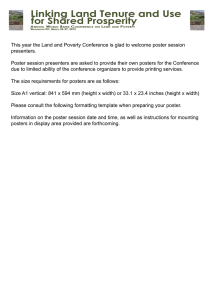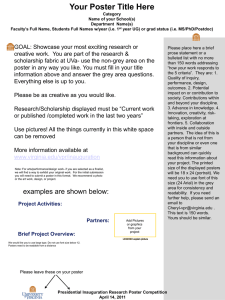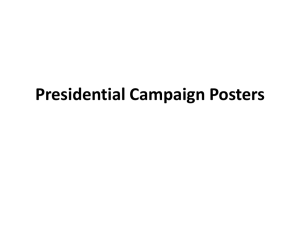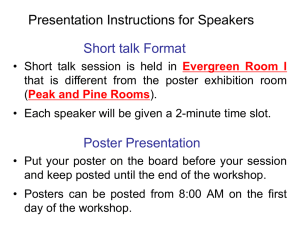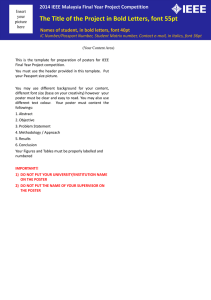Poster size: 48 x 36 Headline here
advertisement
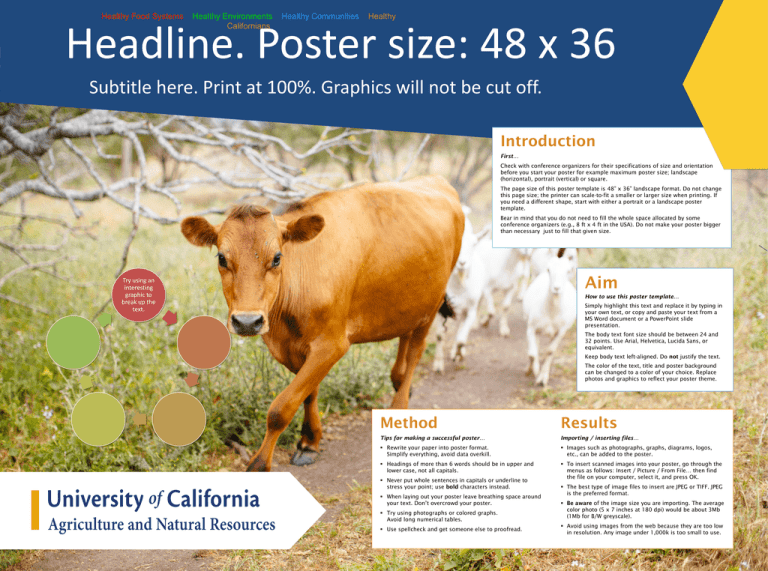
Healthy Food Systems Healthy Environments Californians Healthy Communities Healthy Headline. Poster size: 48 x 36 Subtitle here. Print at 100%. Graphics will not be cut off. Introduction First… Check with conference organizers for their specifications of size and orientation before you start your poster for example maximum poster size; landscape (horizontal), portrait (vertical) or square. The page size of this poster template is 48” x 36” landscape format. Do not change this page size; the printer can scale-to-fit a smaller or larger size when printing. If you need a different shape, start with either a portrait or a landscape poster template. Bear in mind that you do not need to fill the whole space allocated by some conference organizers (e.g., 8 ft x 4 ft in the USA). Do not make your poster bigger than necessary just to fill that given size. Aim Try using an interesting graphic to break up the text. How to use this poster template… Simply highlight this text and replace it by typing in your own text, or copy and paste your text from a MS Word document or a PowerPoint slide presentation. The body text font size should be between 24 and 32 points. Use Arial, Helvetica, Lucida Sans, or equivalent. Keep body text left-aligned. Do not justify the text. The color of the text, title and poster background can be changed to a color of your choice. Replace photos and graphics to reflect your poster theme. Method Results Tips for making a successful poster… Importing / inserting files… Rewrite your paper into poster format. Simplify everything, avoid data overkill. Images such as photographs, graphs, diagrams, logos, etc., can be added to the poster. Headings of more than 6 words should be in upper and lower case, not all capitals. To insert scanned images into your poster, go through the menus as follows: Insert / Picture / From File… then find the file on your computer, select it, and press OK. Never put whole sentences in capitals or underline to stress your point; use bold characters instead. When laying out your poster leave breathing space around your text. Don’t overcrowd your poster. Try using photographs or colored graphs. Avoid long numerical tables. Use spellcheck and get someone else to proofread. The best type of image files to insert are JPEG or TIFF. JPEG is the preferred format. Be aware of the image size you are importing. The average color photo (5 x 7 inches at 180 dpi) would be about 3Mb (1Mb for B/W greyscale). Avoid using images from the web because they are too low in resolution. Any image under 1,000k is too small to use.



